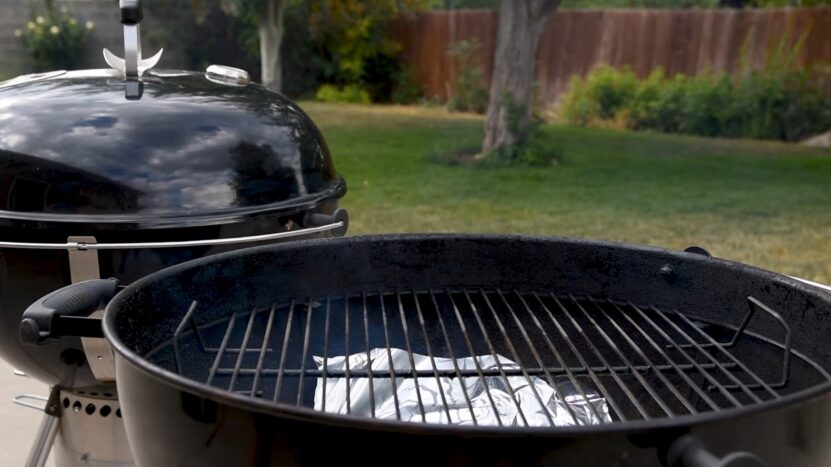The sweet aroma of a grill, the sizzle of meat, and the mouthwatering anticipation of a BBQ meal – all can be dampened if you’re faced with an excessive smoke situation. If you’ve been struggling with charcoal that seems to be smoking too much, you’re not alone.
Charcoal and Smoke
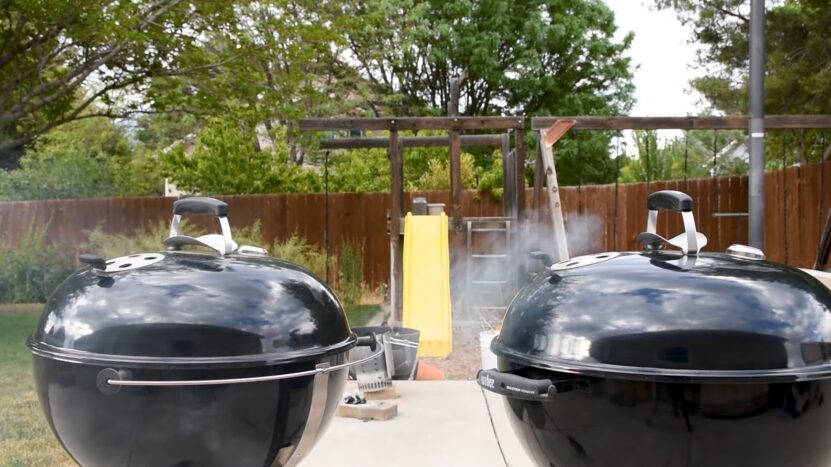
Charcoal grilling is an age-old method cherished by many for the unique flavor it imparts. However, like all good things, mastering it comes with its nuances.
The Basics
Charcoal grilling is much more than merely lighting coals. The type you use, its quality, and how you light it play a pivotal role in the overall grilling process. Properly ignited charcoal should glow red and give off a moderate amount of smoke.
What Constitutes ‘Excessive’ Smoke?
While some smoke is typical and even desired for that smoky flavor, excessive, billowing white or black smoke is a sign that something’s amiss. Not only can it be a nuisance, but it can also impart a bitter taste to your food.
Reasons Behind Excessive Charcoal Smoke
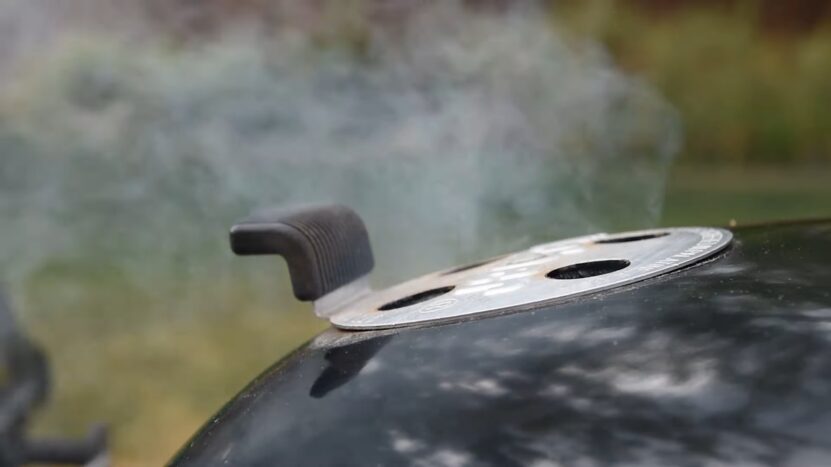
Every problem has its root causes. To address the excessive smoke, understanding these underlying reasons is the first step.
Using Lighter Fluid Liberally
Lighter fluid can be a quick way to ignite, but using it excessively can lead to a lot of smoke. The fluid needs to burn off entirely before you start cooking, or it can impact the taste of your food.
- Tip: If you choose to use lighter fluid, allow the charcoal to burn until it’s ash-covered. This ensures all the fluid has burned off.
Damp Charcoal
Storing charcoal in humid or damp places can lead to moisture retention. When you light damp, it produces more smoke than usual, and the coals might not get hot enough for optimal grilling.
- Tip: Always store your charcoal in a cool, dry place. Consider using sealed containers or bags for added protection against moisture.
The Quality and Type Matter
All charcoals are not made equal. The kind you use and its quality can significantly influence the amount of smoke produced during grilling.
Briquettes vs. Lump Charcoal
While briquettes are uniform and easy to stack, they often contain binders and fillers that produce more smoke when burned. Lump, being more natural, typically produces less smoke but can be a bit trickier to handle due to its irregular shapes.
- Tip: If you’re looking for a more authentic grilling experience with less smoke, consider transitioning to lump charcoal.
Low-Quality Charcoal
Cheap, low-quality charcoal might seem like a bargain, but they often contain impurities that lead to excessive smoke. They also tend to burn unevenly and might not provide consistent heat for grilling.
- Tip: Investing in premium-quality charcoal can reduce excessive smoke and give you better grilling results.
Airflow and Ventilation
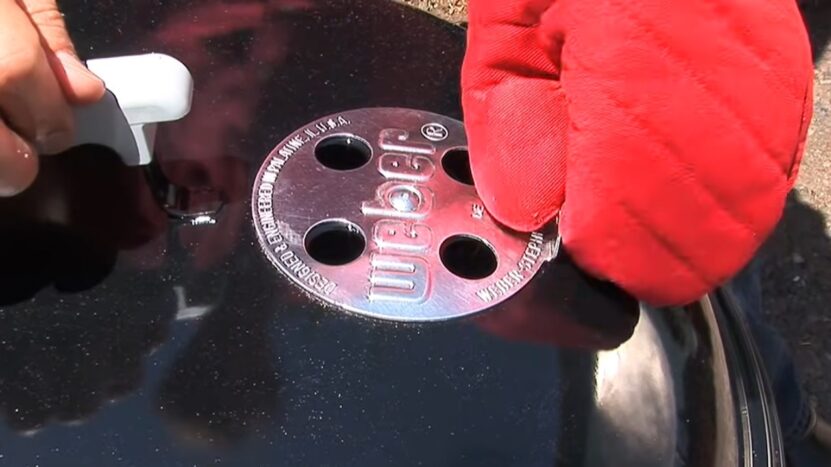
Your grill’s design and how you manage its airflow can greatly affect the amount of smoke produced during the grilling process.
The Role of Oxygen in Combustion
For charcoal to burn efficiently, it needs an adequate supply of oxygen. Limited airflow can lead to incomplete combustion, causing it to smoke excessively. Remember, efficient burning charcoals have a warm, reddish glow and emit a gentle wisp of smoke.
- Tip: Ensure your grill’s vents are open and unobstructed. Adjusting these vents can help you control the temperature and amount of smoke produced.
The Importance of Grill Cleaning
Over time, grills can accumulate grease, food particles, and ash. These remnants can inhibit proper airflow and can also ignite, producing additional unwanted smoke.
- Tip: After each grilling session, ensure you clean the grill grates. Periodically, it’s also essential to remove and dispose of ash and clean other internal parts of the grill.
The Role of Food in Producing Smoke
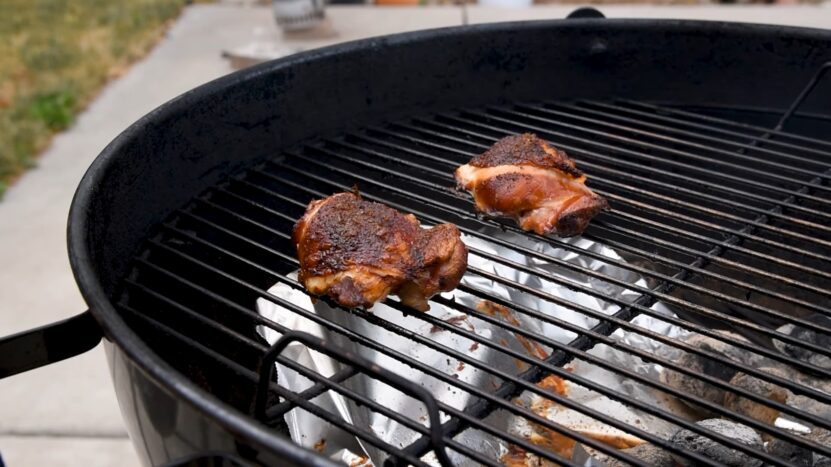
What you’re grilling and how it’s prepped can contribute to the smoke levels. Let’s take a closer look.
Grease and Fatty Foods
Foods that are high in fat, like certain cuts of meat, can produce more smoke as the fat drips onto the hot coals. While this can add a desirable smoky flavor, excessive fat drippings can lead to a lot of smoke and potential flare-ups.
- Tip: Trim excess fat from meats before grilling. Using drip pans can also help in catching some of the drippings.
Marinades and Sauces
While marinades and sauces can enhance the flavor profile of your food, if they have a high sugar content or are excessively oily, they can drip onto the charcoal and produce more smoke.
- Tip: If you’re using a sauce or marinade, consider applying it towards the end of the cooking process. This way, it won’t be exposed to high heat for an extended period, reducing the chances of excessive smoking.
Efficient Charcoal Lighting Techniques
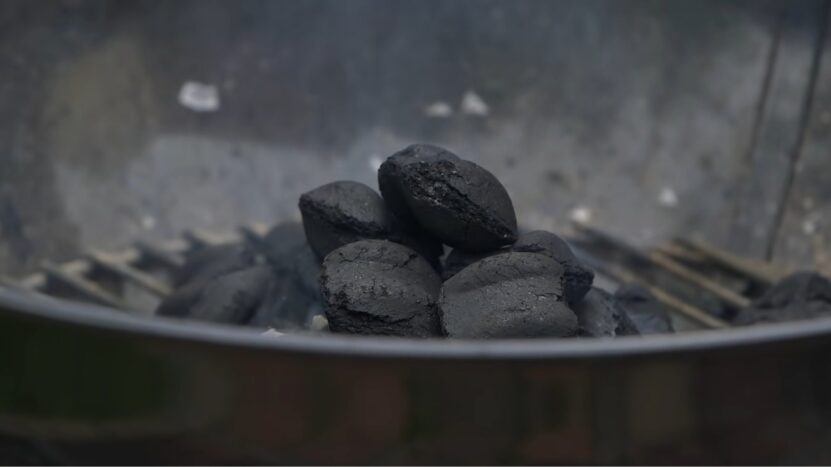
How you start your charcoal can influence its smoking behavior. Efficient lighting techniques can set the tone for the entire grilling process.
Using a Chimney Starter
Chimney starters are cylindrical devices that allow for quick and even lighting of charcoal without the need for lighter fluid. The design ensures optimal airflow, leading to efficient combustion and less smoke.
The Minion Method
Popular among long-haul BBQ enthusiasts, the minion method involves creating a mix of unlit and lit charcoals. This method provides consistent temperature over extended periods and reduces the smoke output.
Troubleshooting Common Smoke Problems
Even seasoned grillers occasionally face unexpected challenges. Here’s a breakdown of common smoke problems and how to address them.
Black Smoke vs. White Smoke
While white smoke is generally a sign of efficient combustion and can impart a delightful smoky flavor to the food, black smoke is an alarm bell. It indicates incomplete burning, possibly due to grease fires, or burning of lighter fluid and other impurities.
Smoke But No Heat
If your grill is producing smoke but not enough heat, it’s a sign that the charcoals aren’t burning efficiently. This can be due to dampness, lack of oxygen, or using low-quality sort.
Flavored Wood Chips
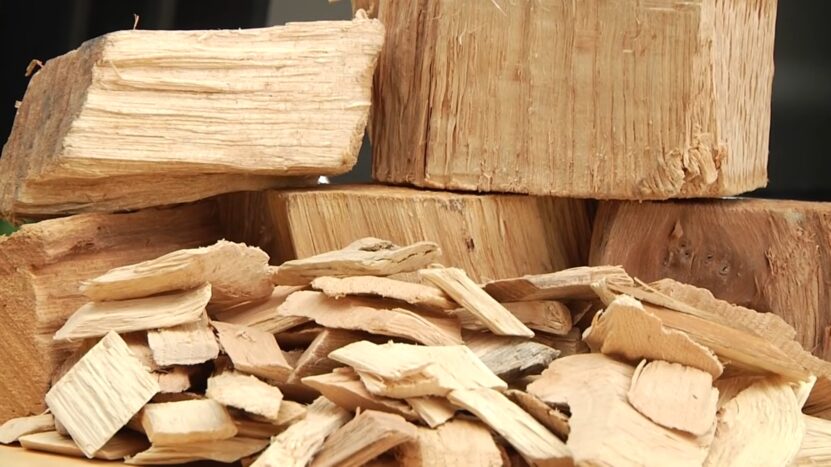
Introducing wood chips to your grilling can elevate the flavor of your food. However, it’s essential to use them correctly to avoid excessive smoke.
Choosing the Right Wood
Hardwoods like oak, hickory, and mesquite are perfect for grilling as they burn hot and produce a pleasant smoky flavor. Avoid softwoods like pine or spruce, which can produce a lot of sooty smoke and impart an undesirable taste to the food.
- Tip: Soak wood chips in water for about 30 minutes before introducing them to the grill. This ensures they produce smoke for an extended period without burning up too quickly.
Avoid Overloading
While it’s tempting to add a lot of wood chips to intensify the smoky flavor, it can lead to excessive smoke and make the food taste bitter.
- Tip: A handful or two of wood chips is usually enough for most grilling sessions. Experiment and adjust based on your preference and the type of food you’re cooking.
FAQs
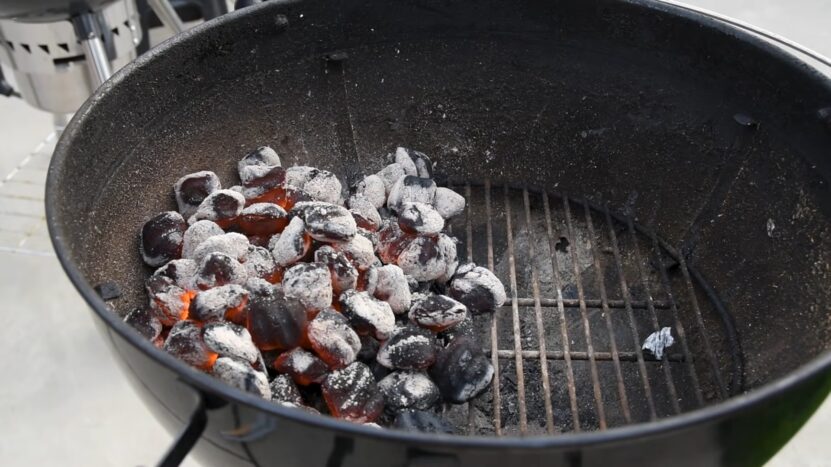
Can the Food I Grill Cause More Smoke?
Yes, fatty foods or those with sugary marinades can drip onto the hot coals and produce more smoke. Trimming excess fat and being mindful of marinade choices can help in reducing excessive smoke.
Is It Advisable to Use Wood Chips for Flavor?
Wood chips can enhance the smoky flavor, but it’s crucial to use them responsibly. Opt for hardwoods, avoid overloading, and consider soaking them in water before use to prevent them from burning too quickly.
How Does Airflow Affect Charcoal Smoking?
Proper airflow is essential for efficient charcoal combustion. Limited or obstructed airflow can lead to incomplete combustion, producing excessive smoke.
How Do I Store Charcoal to Prevent It from Getting Damp?
Store your charcoal in a cool, dry place. Consider using sealed containers or bags to protect against moisture and humidity.
Why Is My Grill Smoking but Not Producing Enough Heat?
This can be due to damp or low-quality charcoals or inadequate airflow. Ensure your charcoals are dry, adjust the vents for better airflow, and consider using higher-quality charcoal.
A Wrap-Up
As we conclude our deep dive into the world of charcoal grilling and smoke management, let’s recap the critical points to remember. Regularly cleaning your grill ensures better airflow, reduces unwanted flare-ups, and prevents excessive smoke generation.
It also prolongs the life of your grill and offers a more hygienic cooking environment. Understanding the type and quality, the role of airflow, and the influence of food and marinades on smoke production empowers you to grill with confidence.
